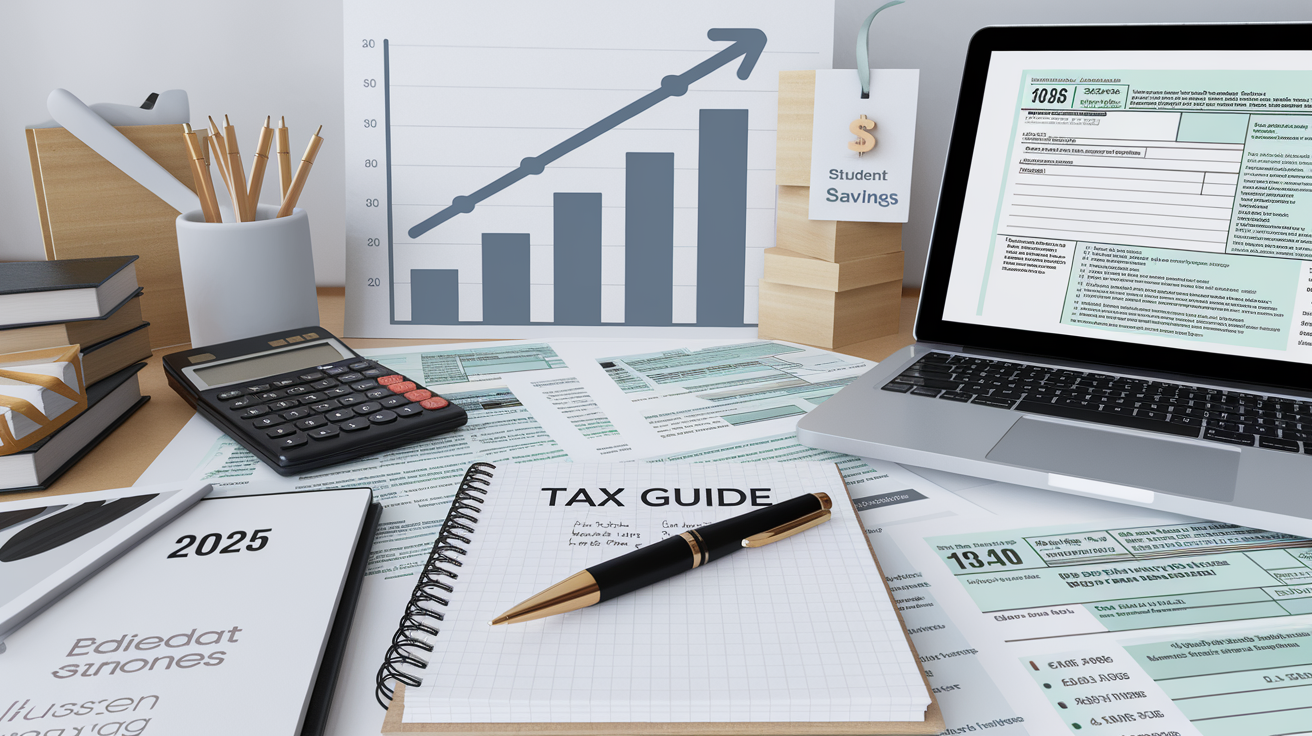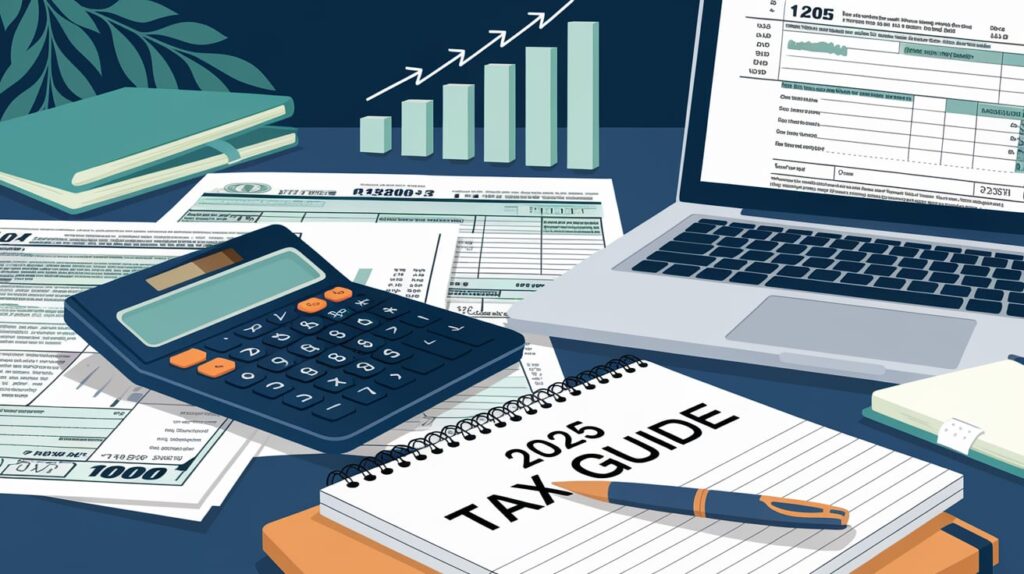

Outline of the Student Loan Interest Deduction
The Student Loan Interest Deduction is a benefit provided by the government wherein taxpayers can deduct the interest accrued on qualified student loans from their taxable amount. Overall, this deduction works to alleviate the tax strain on borrowers, thus allowing them to balance out their student debt with tax benefits. If you have student loans, either with the federal government or privately, you may be eligible to deduct $2,500 in interest charged on those loans every year.
This deduction is especially beneficial for individuals who are still repaying their student loans after graduation. The fact that the deduction is above the line means it can be claimed without itemization, which is a lesser burden for most borrowers.
Student Loan Interest Deduction Eligibility Requirements
Prior to exploring the details of the income thresholds, it is important to understand who is eligible for the deduction:
You must have paid interest on a qualified student loan.
You must be legally obligated to repay the loan (i.e., you cannot claim the deduction if you are not the one responsible for paying the loan).
The student loan had to be taken out for the sole purpose of incurring expenses related to a higher education institution.
Student Loan Interest Deduction Income Limit: What You Need To Know
Not all taxpayers qualify for a student loan interest deduction, because the amount they can claim is dependent on their Modified Adjusted Gross Income (MAGI). The greater the income, the less the claim, and eventually, the taxpayer stops being eligible to claim the deduction entirely.
3.1 Overview of Income Limits for 2025
The income cap for 2025 has also been updated due to inflation. These are the new income limits for eligibility:
Single Filers: The phaseout for it begins at a MAGI of $75,000 and is completely phased out by $90,000.
Married Filing Jointly: The phaseout starts at a MAGI of $150,000 and ends at $180,000.
Head of Household: The phaseout begins at $112,500 and ends at $135,000.
Should your MAGI placed you within the area below the phaseout range, you are entitled to a deduction of the full $2,500 (or whatever amount you have paid in interest, if that amount is less). As income increases, the deduction decreases until the income cap is reached, at which point the deduction ceases to be claimed.
3.2 Adjusted Gross Income (AGI) and Modified Adjusted Gross Income (MAGI)
AGI enables the taxpayer to qualify for different tax advantages, however, MAGI is more commonly used for the student loan interest deduction. MAGI is referred to as ‘your AGI with a few add-backs’ such as contributions to retirement plans, deductions for student loans, and tuition expenses.
What Is The Maximum You Are Allowed to Deduct In 2025?
If one qualifies, the maximum claim on student loan interest is set at $2,500. This figure is applicable to those who are currently paying back their loans and who fall under the MAGI restrictions. If someone is phased out of the MAGI range, they will still receive some deduction benefits. If the MAGI restrictions are fully exceeded, then no further benefits can be claimed.
Income Threshholds Based on Filing Status
The income limits for the deloan interest deduction are dependent by your filing status. Let’s outline the thresholds pertaining to filing statuses.
5.1 For Individual Filers
The single taxpayers can claim full deduction if MAGI is below $75,000. However, the deduction starts phasing out and verblly disappears once the MAGI reaches $90,000.
5.2 For Married Couples Filing Jointly
For married couples who file jointly, the phaseout begins at MAGI of $150,000 and is fully eliminated once it reaches $180,000. Both spouses are required to meet the thresholds in order to receive the deduction.
5.3 For Heads of Household
Head of household filers are eligible for the student loan interest deductable if the MAGI is below $112,500. The allowance will completely phase out at $135,000.
What Makes The Income Cap Relevant?
These frame limits have been constructed in order to guarantee that the tax benefit are paid to people that direly need it. The allowance were made to help the lower middle income people repay their student loans, and with higher income is being earned, the government tends to limit and gradually take away the allowance.
What Happens If You Go Beyond The Income Threshold?
If your MAGI goes over the prescribed limit, you will be ineligible for the deduction. To deal with your student loan repayment, there are however other options, such as:
Plans that help repay the debt: These can reduce your monthly payments depending on your income levels.
Refinancing of student loans: Refinancing your loans could lower your interest rates, reducing the amount of interest you pay.
How To Take Advantage Of The Student Loan Interest Deduction
To take advantage of the student loan interest deduction is rather straightforward. You will have to:
Provide the amount of interest incurred on the student loans by submitting Form 1098-E sent by the loan servicer.
Complete Schedule 1 of your Form 1040 and indicate the student’s loan interest deduction in the section labeled “Adjustments to Income.”
This benefit can be taken without having to itemize deductions, which makes it a good way to reduce your taxable income.
Effects of the Student Loan Interest Deduction on Your Taxes
Interest payments on a student loan are considered a deduction which lowers the tax you are obligated to pay. For instance, let’s assume that payment of $2,000 interest on student loans was made. If combined income was $50,000, after deducting the interest, the income will be $48,000 instead. This would put less of a burden on the taxes owed because the income was lower.
Changes Made Recently to the Student Loan Interest Deduction Income Limit
As previously stated, it is now possible to periodically update some of the income gaps that you are eligible to claim for student loan interest as a deduction. The limits have grown a little this year, which is an improvement. In these matters, there is a need to ensure that tax deductions or benefits are not neglected.
Implications of Interest on a Student Loan After a Forgiveness Case is Closed
If a student loan is forgiven, it eliminates any tax deduction applicable on the interest. Still, it would be sensible to note that the forgiven amount can also be considered taxable, making consulting a tax advisor necessary for understanding the range of real tax effects.
Can You Write Off Student Loan Interest on Private Loans?
Certainly, the student loan interest deduction applies to both federal and private loans, provided that all other criteria are met. If you’re paying back a private loan, you’re still eligible to claim the deduction provided you’re under the required income level.
Common Errors Not To Make When Applying For The Deduction
Claiming a deduction and not checking your income claim: Always check your MAGI because you may still be over the limits.
Not reporting all payments of interest: Make sure you include all payments of student loan interest, not only those on federal loans.
Ignoring filing status changes: Your filing status can change your eligibility for the deduction.

Other Questions Related To And The Limit Of Income For Deducting A Student Loan Interest
14.1 What is the current income eligibility for the deduction on student loan interest?
For the year 2025, the limit for deducting the student loan interest for persons filing single return is $90,000. For persons filing joint returns, the limit is $180,000. For head of household, the limit is $135,000.
14.2 Am I eligible for the claim of student loan interest if I am married but I file my taxes separately?
Not possible; this deduction is not available for married people filing separately.
14.3 How can I further qualify for the deduction by lowering my MAGI?
Yes, lowering your MAGI could qualify you for a tax deduction which could be achieved by contributing to a retirement account or by utilizing other tax deductions.
14.4 Is the student loan interest deduction available for both federal and private loans?
Yes, the deduction is available for both federal and private student loans.
14.5 In what way does a student loan interest deduction change my refund?
By reducing the taxable income, the refund increases as the student loan interest deduction lowers the tax which is owed.
14.6 Can I take a student loan interest deduction while I’m still a student?
Yes, as long as you are making any payments towards your loans, you are eligible for the deduction, regardless of whether you are still in school or not.
Conclusion
Although the student loan interest deduction is burdensome for many borrowers, knowing the income caps along with the criteria is important. If borrowers keep themselves updated and claim properly, their tax obligation stands to reduce. Always consult a tax professional to make sure you’re maximizing your benefits.

Leave a Reply